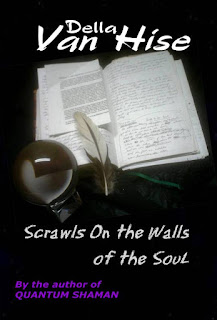______________
I see more and more new age gurus advocating "the elimination of negative emotions." And while that may look good as a book blurb, the reality is that seeking to eliminate emotions (whether positive or negative) is like attempting to grow a pair of wings or poop rainbow sherbet. Stalkers (in the Toltec/nagualism tradition) understand that it is how we use our emotions that determines their value or their liability.
If we eliminate all fear, for example, there's nothing to keep us from wandering blind and blissful into dangerous situations unnecessarily. Without fear, we might pick up a rattlesnake or leap into shark-infested waters. In fact, many Christian cultists have done such things to prove their faith (and their lack of common sense), and seldom if ever does it end well. Some will argue that reason and intellect can replace fear, and while that may be true to a minor degree, it is fear that has kept the species alive and allowed us to develop background instincts which operate often without our conscious awareness. And, for that matter, who's to say that common sense, reason and even intellect are not simply the evolved manifestations of fear?
If we eliminate anger, for another example, we may lose the ability to protect ourselves or those we love if we come under attack. There are plenty of reasons why martial arts masters teach their students to fight... and then teach them how not to fight, though the foundation of self-defense remains whole and intact in the event it is ever needed.
It is often a very real sense of anger that motivates humans to get off their arses, engage their prehensile tails, and actually do something about whatever it is that's pissing them off. The situation at Standing Rock is just one current example - where enough people got angry enough to take a stand. How it ends, no one knows at this point in time. But it is an example of something positive that can happen when anger becomes manifest through action.
Please know, I'm not advocating using anger to justify outright violence. If you're pissed off at your neighbor because his dog craps on your lawn, diplomacy and negotiation would be the first line of action, but taking the law into your own hands would never be an option. So, yes, common sense and intellect play a role in how we learn to use our emotions to our advantage, and also to insure those same emotions don't become a liability that lands one in the slammer or on the receiving end of a lethal injection.
In another example, the recent travesty of an election has riled up the United States in a way I haven't witnessed since the civil rights movement and, later, the "hippie" movement of the 1960s. At this moment in time, we are faced with a president-elect who defines the wind as "deceitful" (yes, the wind!) and encourages his followers to perpetrate violence and racist segregation against those who are different from themselves (LGBT, Muslims, Mexicans, immigrants of all description, women, and only the sleeping gods know what else). The KKK is marching in the street, and redneck homophobes have perpetrated heinous and even murderous acts against gays. If it isn't his ignorance that kills us all, it will be his arrogance.
But the thing is... on the other side of that mindless violence and hatred, a significantly large number of the American people have become angry enough ("outraged" would be a better word) to take to the streets in (mostly) peaceful protests, initiate petitions to demand a recount, other petitions to encourage the Electoral College members to reconsider their final vote in December, and a host of other potential "alternatives to Agent Orange" with which I am not familiar.
It wasn't passive acceptance that brought about this cry for change. It was anger - and without it, humans would sit quietly in their Lazy Boys and welcome the zombie apocalypse with open arms and a plate full of vegan cookies and soy milk.
What I've observed is that even our dark emotions are part of our warrior's armor and arsenal. Sure, you can say it's common sense that replaces fear and impeccability that takes the place of anger, but any of those things alone may not be enough. It is the whole being - guided by impeccability and intent - who learns to control and direct her emotions appropriately.
We are yin and yang, dark and light. That isn't going to change. As the old saying goes... "The one who wins is the one you feed."
To read similar anecdotes from the perspective of a Toltec seer...
Or buy my books on Amazon or EyeScryPublications.com


















